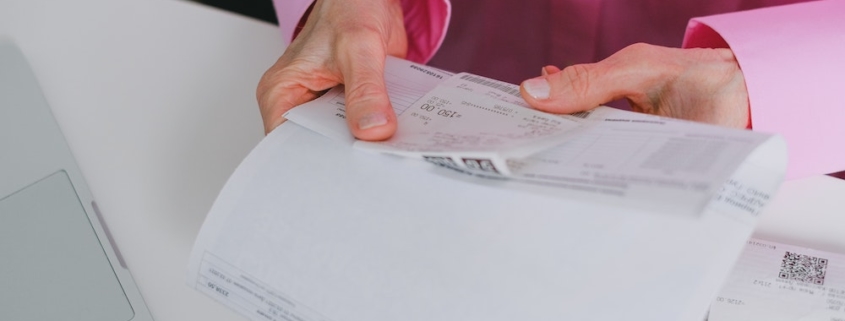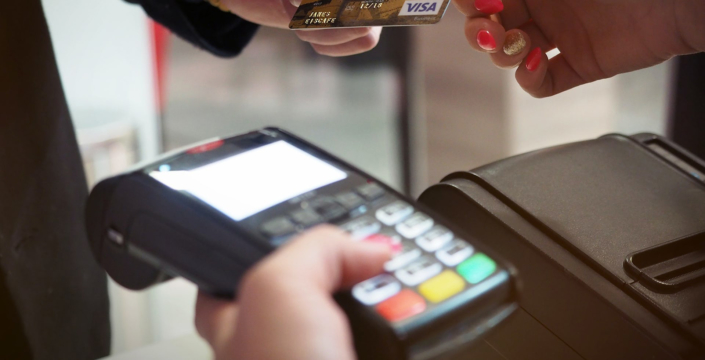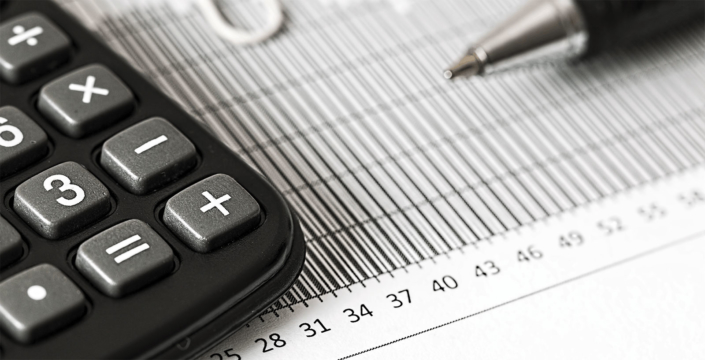Blog | All Posts | All Topics
Can You Claim Tax Deductions Without Receipts?
If you’re wondering what you can claim on tax without receipts, this guide may help. In Australia, taxpayers can claim a deduction for many out-of-pocket expenses incurred while earning their income. These include work-related travel expenses, clothing and equipment costs, union fees, and other professional expenses.
However, the Australian Taxation Office (ATO) requires taxpayers to have a valid record or receipt to claim a deduction. This is to ensure that taxpayers are only claiming deductions for legitimate expenses. But what happens if you are missing receipts? Can you still claim tax deductions without a receipt?
In this article, we’ll look at what the ATO says about tax deductions without receipts. We’ll also outline which items you can claim without receipts and how you should ensure you are following ATO guidelines.
Australian Taxation Office rules for claiming tax deductions
Any expenses you claim on your taxes must meet three primary requirements:
- It must be necessary for you to earn your income.
- You must have been the one who purchased it. Also, it can’t be an expense a company reimbursed you for.
- You must prove you purchased it with a record or receipt.
If you meet the first two requirements, then all you need are the receipts. The ATO is clear on its stance when it comes to claiming tax deductions without receipts. According to the ATO website, “You must have a record of your expenses to show how you calculated your claims.” If you don’t have a valid receipt, you won’t be able to claim the deduction. However, there are some exceptions to this rule.
What can you claim without receipts?
For example, if you’re claiming for a work-related expense that costs less than $100, you may be able to use other records (such as your bank statements) to prove your claim. You should still track expenses.
The $300 rule
If you’re claiming for expenses that cost more than $300, you’ll need written evidence (such as receipts or invoices) to support your claim. You must also keep records of your expenses for five years in case the ATO needs to review your case.
Examples of tax deductions
Businesses and individuals can claim deductions on their tax returns. Claiming tax deductions can save you money. It lowers your overall taxable income, so you could end up paying less in taxes. Examples of tax deductions you can claim include:
Lodging your taxes
Some costs associated with managing your tax affairs are deductible. For instance, if you pay a registered tax agent to lodge your return or provide advice, you might be able to claim the cost as a deduction. Other costs you can claim include:
- Travel expenses incurred when you travel to meet with your agent for professional advice
- The fees involved with preparing and lodging your tax return and activity statements
- Expenses related to communicating with the ATO on your behalf
- Any litigation fees, such as court fees
- Credit/debit card payment fees for business tax liabilities (GST etc.) and debit
You may also be able to claim expenses associated with obtaining and using materials or software to assist in the process. However, you can only claim part of the cost if you use the software for other purposes besides lodging tax returns.
Car expenses
If you’re using your own car for work purposes, you can claim a deduction for the cost of running your vehicle.
What it includes:
- Fuel
- Oil
- Repairs
- Maintenance
You can calculate your claim using the cents per kilometre or logbook method.
Home office expenses
You can claim a deduction for a portion of your mortgage interest, rent, insurance, and utilities. However, you must be using a room in your house as a dedicated home office.
Home office expenses include:
- Utility, rent, or mortgage costs for the portion your home office uses
- Internet costs
- Stationery and office supplies
Work-related travel expenses
Some work-related travel expenses are deductible. Many businesses reimburse employees for travel costs. So, remember if you’re reimbursed, you can’t claim it on taxes.
What travel expenses include:
- Airfares
- Accommodation
- Car hire
Clothing and uniform expenses
If you’re required to wear a uniform to work or if you need to purchase protective clothing, you can claim a deduction for the cost of these items.
Education and professional development
You may need to take professional development courses or incur other education expenses for work. As long as your employer didn’t reimburse you for the costs, you can claim a tax deduction.
How to track receipts and expenses
Tracking your receipts and expenses helps show proof of your expenditure. ATO’s myDeductions app can simplify this process for individuals and sole traders.
However, it’s not suitable for businesses. Instead, businesses should track their expenses with accounting software or receipt tracking via Dext or Xero. Working with an online bookkeeping service can also help you record and organize your expenses and other finances to make lodging taxes easy.
How can you claim tax deductions without receipts?
Keeping a record of your receipts is the most straightforward way to claim tax deductions. However, receipts are not the only records that businesses keep to log their income and expenses.
Here are some examples of records you might also have:
Bank statements
If you’re working with a bookkeeper, they may already be reviewing your bank statements to make sure your books are accurate. A bank statement will usually show a record of your transactions including the dates, amounts, and suppliers.
Logbooks
A logbook is a detailed record of vehicle usage over a specified period. If you use your car for work purposes, maintaining a logbook can help provide evidence of your claim for vehicle-related expenses.
The ATO will look at the total kilometres driven, how much of that was for work, type of car, and purchase date to determine whether you are eligible for the deduction.
Work Diary
A work diary is a record of work-related activities, often including dates, hours worked, and tasks performed. It can serve as proof of work-related expenses such as long-distance travel or overtime meals, helping substantiate your claims for tax deductions.
What records you can’t use for tax deductions
The ATO has a list of unaccepted proof of deductions, which includes the following:
- Handwritten notes
- Oral agreements
- Estimated receipts
- Spreadsheets
How do you get the most out of tax deductions?
There are a few things you can do to make sure you get the most out of your deductions.
- Keep records: As we mentioned earlier, keep records of all your expenses in case the ATO needs to review your claim. This includes receipts, invoices, bank statements, and wage records.
- Know the rules: It’s essential to know the rules around claiming a deduction. This includes knowing which items you can claim without receipts and what evidence the ATO will accept.
- Get help: If you’re unsure about something or need assistance calculating your deductions, you can speak to a registered tax agent or accountant.
A registered tax agent or accountant will help you:
- Understand the rules and ensure you’re claiming deductions correctly.
- Calculate your deductions so you don’t miss anything.
- Lodge your tax return and maximise your refund.
At the end of the day, it’s important to remember that you can only claim deductions for expenses that are directly related to your job. However, with the help of a professional, you can be confident that you’re getting the most out of your tax return.
The Bottom Line
You can claim tax deductions without receipts, but you need to show evidence of your expenses through other records such as invoices, bank statements, and wage records. If you don’t have documents to support your claims, you can’t claim the deduction.
Items you can claim without receipts include car expenses, home office expenses, work-related travel expenses, clothing and uniform expenses, and education expenses.
To get the most out of your deductions keep records of all your expenses and know the rules around claiming deductions. If you’re unsure about something or need help calculating your deductions, you can speak to a registered tax agent or accountant. They can help you understand the rules and make sure you’re claiming deductions correctly.
Contact Visory Today
If you need help with getting your books in order for taxes, our team at Visory can help. We are a team of expert bookkeepers who can help you with all aspects of your bookkeeping. We’re here to help you maximise your savings and manage your books. Contact us today to find out how we can help you.







